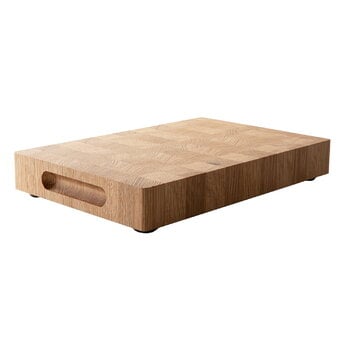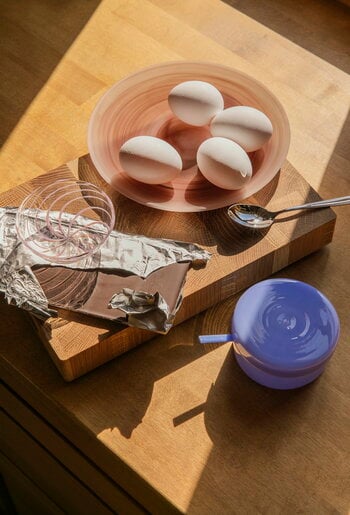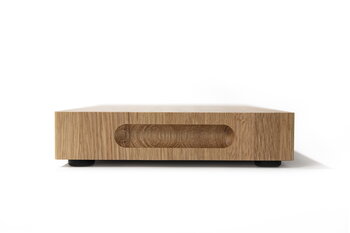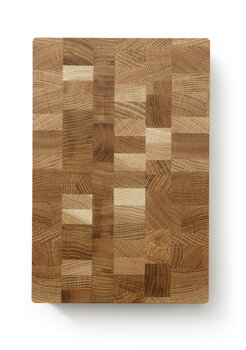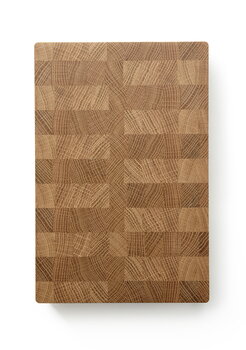The OFFCUTS collection by Wooden is crafted using, as the name suggests, offcut wood from the woodworking company’s projects – the cutting boards, for example, are made of leftover wood from desks crafted for an office in Helsinki, Finland. All of Wooden’s timber is sustainably sourced and certified, and using leftover materials makes it even more sustainable.
With the OFFCUTS series, Wooden not only wants to make use of materials that would otherwise go to waste but also to challenge the traditions of the industry. Relying on the concept of Digital Craftsmanship, the items are manufactured as automatically as possible using machining robots and minimizing the amount of handcraft. Thanks to the natural material, each object is still unique with varying colours and wood grain patterns.
The cutting board is made of oak wood and can be used also as a serving tray: the board has handles on each end to make carrying it easier.
